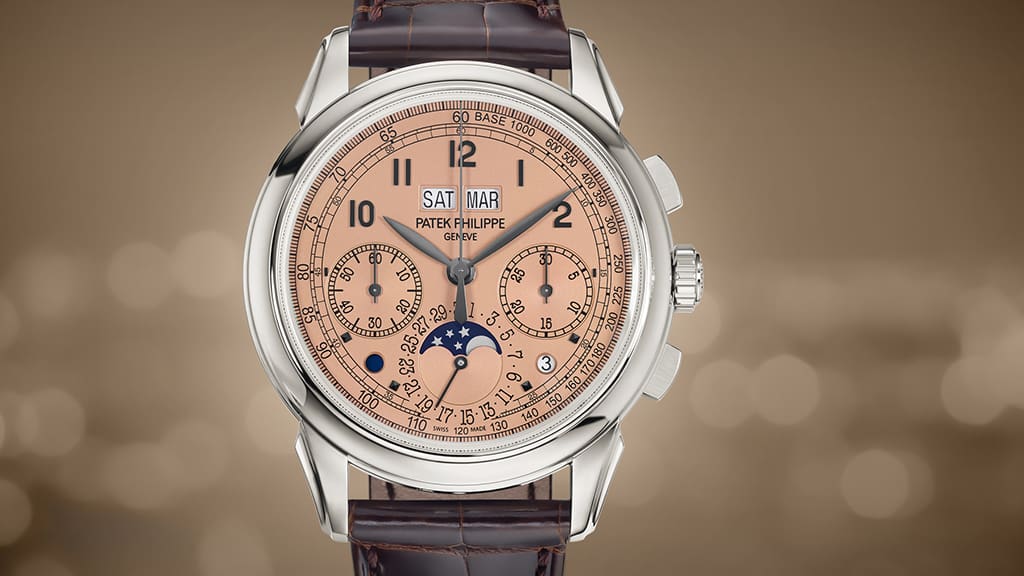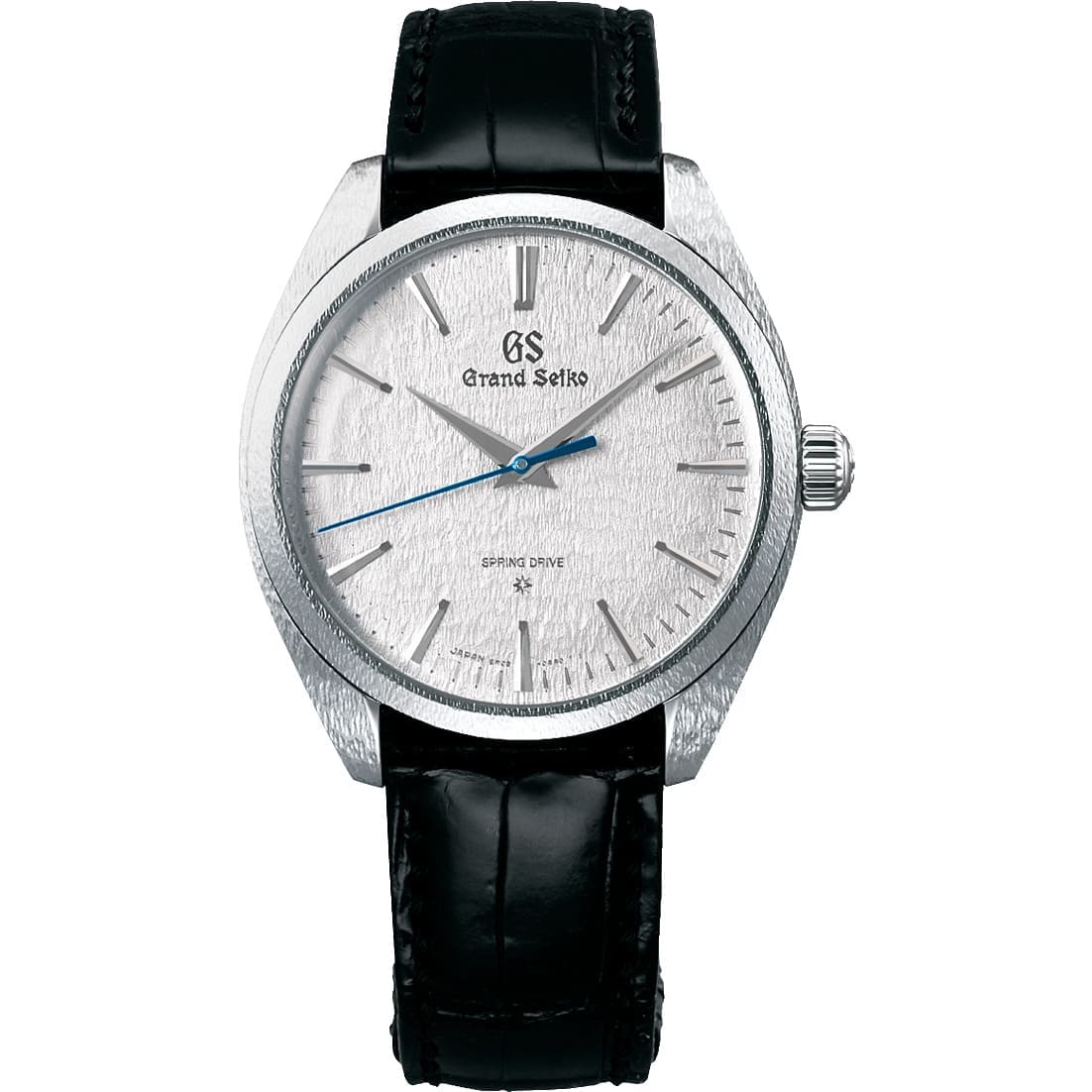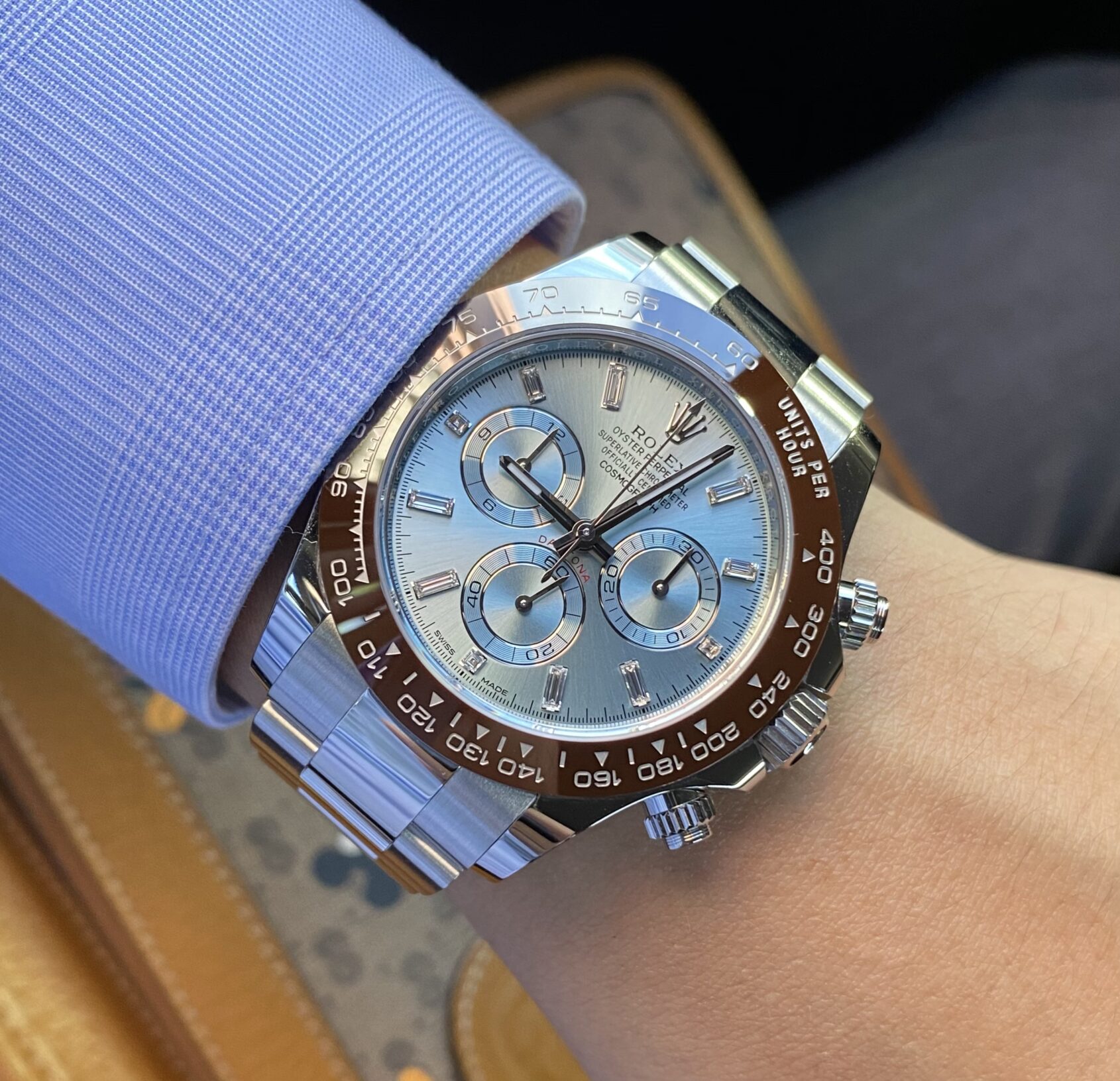Platinum status: The psychological reason why we think heavy watches are more valuable
Luke BenedictusPlatinum is the acceptable form of heavy metal. The reason for this isn’t just down to the lack of spandex trousers and apocalyptic imagery. It’s simply hard not to be seduced by a platinum watch. Here is the ultimate stealth-wealth material that visually offers the discretion of stainless-steel. And yet pick up a watch like the Patek Philippe 5270P-01 Chronograph Perpetual Calendar or Rolex Cosmograph Daytona and one thing strikes you immediately. Platinum watches are heavy. On the wrist they deliver a tangible sense of weight and substance that we associate with the luxury experience.

But why do we associate heaviness with quality? From a practical perspective, after all, a weightier object is generally more cumbersome and less manageable. Admittedly, the main reason that platinum watches are so expensive is because they’re made from an extremely difficult metal to work with due to the fact that platinum is so resistant and hard to machine. But the connection between weight and quality goes way deeper than this. In many areas of life, greater importance is attributed to heavy things. We talk about “light entertainment”, “heavy hitters” and “weighty matters”. These linguistic quirks are revealing because they show how we have come to connect heft with significance.
It turns out there’s a good reason for this as demonstrated by a study that shows that simply holding a heavy object can affect the way we think. In a study “Weight as an Embodiment of Importance”, researchers from the University of Amsterdam demonstrated the link between the two through a series of experiments. In each one, a different set of volunteers were asked to hold a clipboard that weighed either 1.5lbs (0.68kg) or 2.3lbs (1.04kg). Clipboard in hand, the 40 volunteers were then asked to guess the conversion rates between euros and six other currencies. The people who held the heavier clipboard valued the currencies as more valuable.

The experiment then moved into the more abstract zone of social justice. The researchers presented 50 volunteers with a made-up scenario where a university was denying students the opportunity to voice their opinions on a study grant. The volunteers holding the heavy clipboard felt it was more important that the university let the students have their say. In short, they perceived it as a weightier issue.
In another experiment, 40 more volunteers were asked to say whether they agreed with six statements about the construction of a controversial new subway. The list included three arguments that previous volunteers had dismissed as weak – that the building of the subway, for example, was a display of civic bravery that showed a willingness to tackle large-scale projects. In addition, there were three stronger arguments on the list – one of these, for example, was that the subway would make the city more accessible.
All the volunteers agreed more with the strong arguments. But they did so more emphatically if they held the heavier clipboards. That group were also more confident in their opinions and had more robust views on the subway. In short, the heavier clipboard triggered people to make stronger and more forceful judgements.

The head of the research, Nils Jostmann, believes the link between weight and importance stems from our childhood experiences. As little kids we discover that heavy objects require more effort to deal with, not just in terms of strength, but in mentally figuring out how to move or navigate them. Our brain then applies this physical experience to more abstract concepts, like significance. And, in our case, it would seem watches as well.
This mental phenomenon can perhaps explain why it’s taken so long for luxury watch brands to belatedly appreciate the value of titanium. It was only this month that Rolex released their new Deepsea Challenge, the Crown’s very first official dalliance with titanium. In a way, this seems odd given the material has plenty of benefits – particularly for dive watches – being lightweight, corrosion-resistant and hypoallergenic. Much like the rest of us, it’s taken Rolex a while to overcome this hard-wired idea: that an item can weigh less without being “lightweight”.




